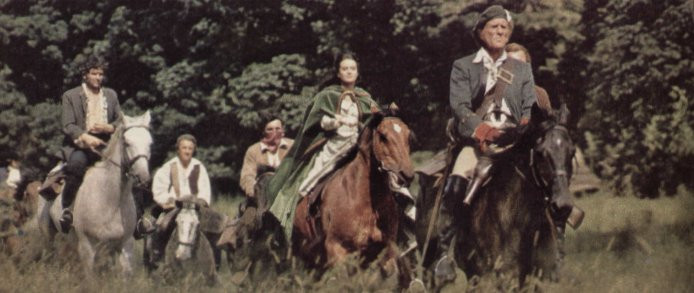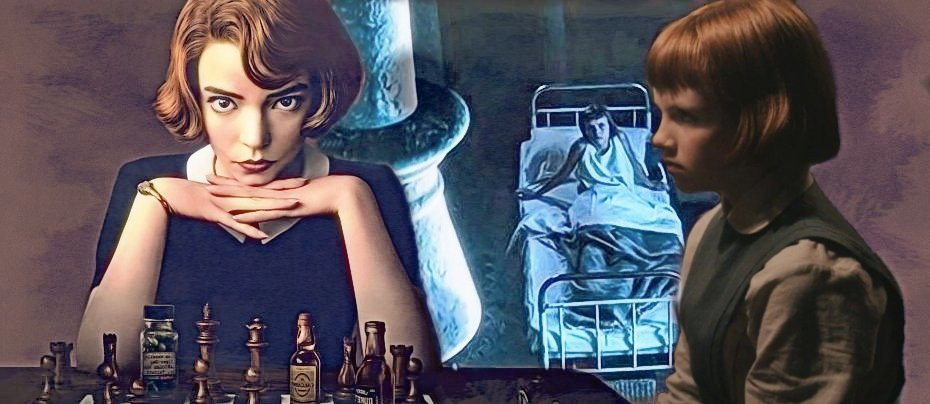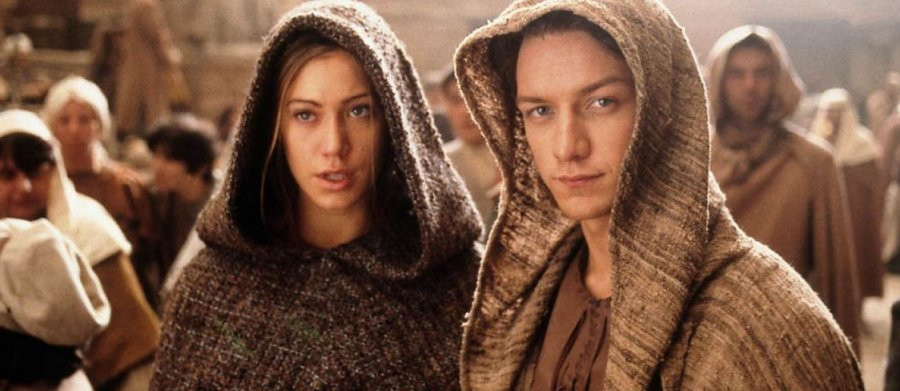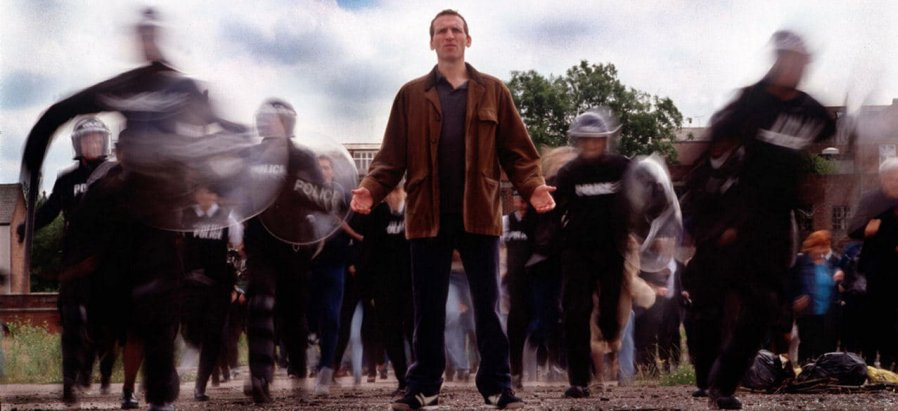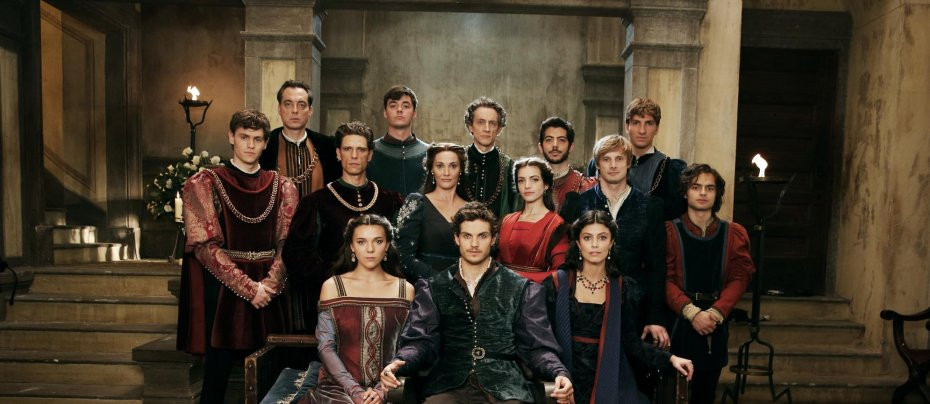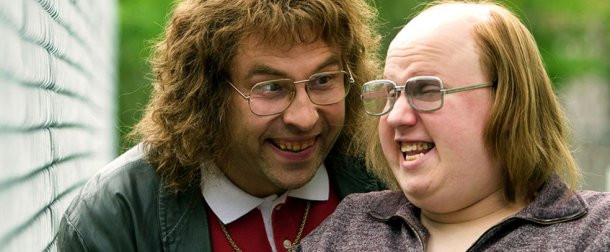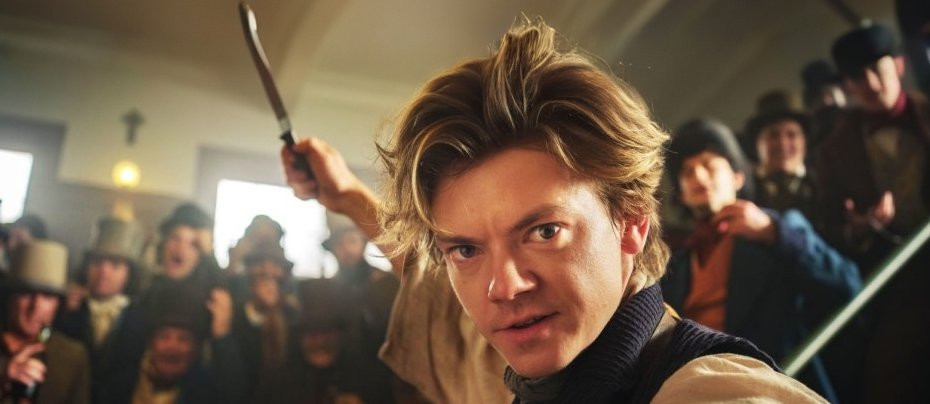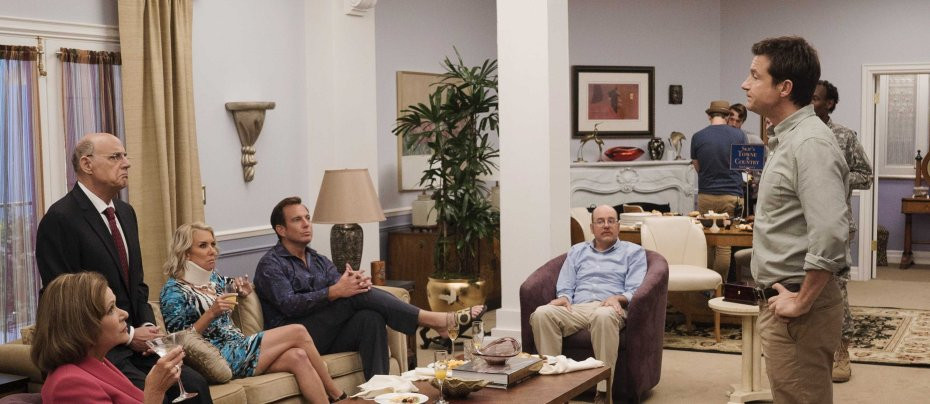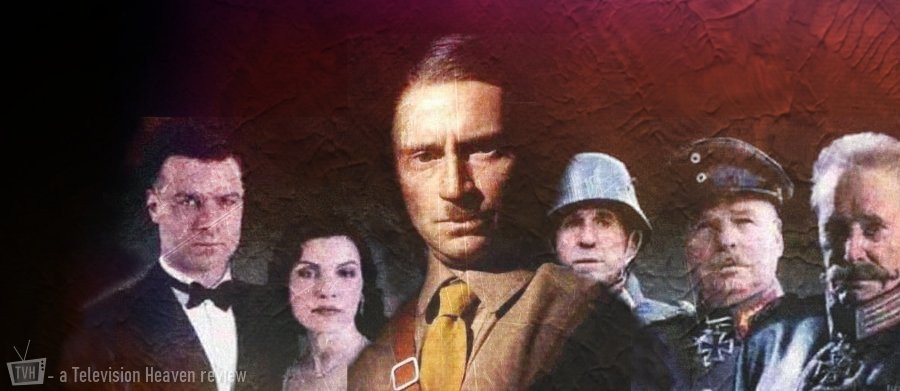
Hitler: The Rise of Evil
2003 - CanadaReview - JWR
Adolf Hitler bears ultimate personal responsibility for, among other things, the worst individual crime in history, the cold-blooded systematic murder of somewhere between five and six million men, women, and children in deliberately designed extermination camps. Much as he tried to maintain his "deniability," for even he saw the criminality of it, the presence of the Secretary of his own Chancellery at the Wannsee Conference, where the "Final Solution" was agreed, puts Hitler's knowledge and therefore approval beyond reasonable doubt.
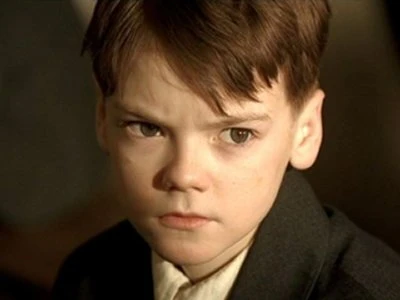
Given these undeniable facts, it is odd that producers, directors, writers, and actors still feel the need to show their disapproval of the man by going over the top in making him as nasty as possible whenever he appears on film or television. The title of Hitler: The Rise of Evil, two part Canadian "miniseries" starring Robert Carlyle as the future Fuhrer, says it all. Immediately we see Hitler as a surly, unpleasant child and teenager in the titles sequence. Thereafter he is shown beating his dog. Throughout he is always depicted as bristling with suppressed anger and completely lacking in basic social skills. This is shallow and sometimes misleading.
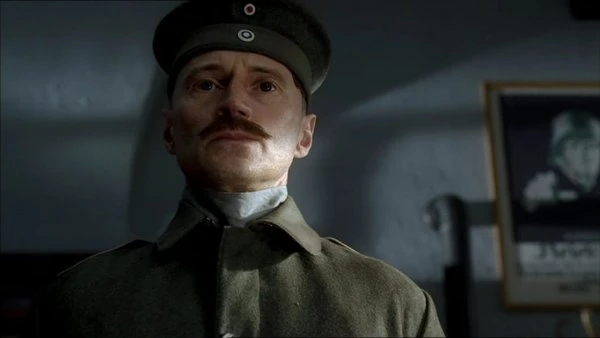
Yet who cares if the popular image of Hitler is no now more than the raging maniac of a thousand 'Downfall' parodies? Ridicule is a fitting punishment for such a vain man. He deserves it and worse. After all, given his crimes, it is hardly liable to make him look bad, even to the extent of a little inaccuracy in more trivial aspects of his life. There is also the danger, especially in the current heated atmosphere, that anything less than constant revulsion might be interpreted as sympathy and sympathy might be interpreted as support.
The problem with this attitude is that not only is it unnecessary, since the actual crimes speak for themselves, but it even detracts from those crimes by diverting attention to lesser faults, real, imagined, and exaggerated. If the man murdered millions, does it really matter that he was a bore at dinner parties?
More importantly, it misses the point. Simply writing Hitler off as an obviously nasty, evil man avoids us having to consider disturbing questions, most of all how such a man could have taken over a democracy with the most liberal constitution imaginable in what was arguably, at least in terms of arts and sciences if not politics, the most civilised nation in the world. We need to understand how this happened if we are to stop it happening again, especially at a time when demagogues, of all political stripes, seem more prevalent than ever.

The depressing truth is that this was a man literally loved by millions and widely admired by people beyond Germany who really ought to have known better. He was the object of intense devotion to those closest to him. He was able to persuade rich people who were wary of his socialist economic policies to back him financially and, at the same time, persuade poor people that he was one of them. In its eagerness to show us how bad he was, Hitler: The Rise of Evil neglects to show us that one of the reasons for that rise was that he had the ability to charm, at least on occasion. It shows us the result, not how he did it.
Nor does Hitler: The Rise of Evil really engage with his psychology. An extreme narcissist, he was nevertheless probably not a clinical psychopath. Having lived in extreme poverty for long periods in his early life, his identification with the poor was sincere, as was his consequent support for extensive welfare programmes. Every man is the hero of his own story, and Hitler made himself so explicitly in his autobiography 'Mein Kampf' - literally 'My Struggle.' A drama that wants to tell the truth about Hitler has to accept that both his self image and his public image were what they were. 'Hitler: the Rise of Evil' is reluctant to acknowledge this.
That is a pity, because there are many good things about the production. No one does barely suppressed aggression as well as Carlyle, and if there was more to Hitler than that, it was still a major aspect of his character, well presented here. Carlyle's portrayal is also accurate in that it shows that everything Hitler did was calculated, even to the extent of practising the histrionic hand gestures that accompanied his speeches.
Hitler's extremely unhealthy relationship with his niece is well documented as being as it is shown. Indeed, his attitude to women in general was odd: he despised them and worshipped them, perhaps wanting love but rejecting it before he was rejected. Despite that, many women seem to have found him very attractive. Hitler: The Rise of Evil does not really explain why.
The "miniseries" does, however, get a lot of the politics right, even if it could usefully have expanded on exactly why so many Germans felt both desperate and resentful in the 1920s. It is accurate in showing that Hitler had a strangely symbiotic relationship with Communism: his version of National Socialism was a reaction against Marxism but also stole a lot of ideas from the Communists. It makes the often neglected point that National Socialism was not just Hitler, and that his control of his own Party was challenged by a left wing led by Ernst Rohm and the Strasser brothers, and also from the opposite direction by the more traditional figure of General Erich Ludendorff. Although the script uses the expression "right wing" a lot, the National Socialists, as their name suggests, never thought of themselves that way. 'Hitler: the Rise of Evil' is correct in its depiction of conservative elements in the Weimar Republic as both Hitler's most serious opponents and ultimately his dupes.
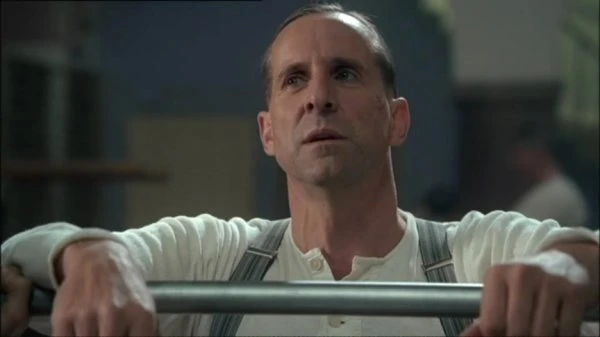
Although he looks nothing like him, the always compelling Peter Stormare captures the essence of Ernst Rohm as the not very bright but phenomenally brave street fighter to whom even Hitler looked up at first. It seems that Lance Corporal Hitler had a tendency to be overly impressed by members of the officer class with strong reputations - including Ludendorff, Rohm, and Goering - only to fall out with them later. In the best performance in the production, Stormare shows us why Hitler saw Rohm as both a role model and an uncontrollable menace.

Like Stormare, Peter O'Toole looks nothing like his character, Field Marshal von Hindenburg. Giving him an oversized uniform does not help. It also has to be said that von Hindenburg, the epitome of the reserved Prussian 'Junker,' was emotionally far more guarded than O'Toole's performance. However, this does get the point across that von Hindenburg despised Hitler at a visceral level and had a genuine fear that he would have to answer to God for making him Chancellor, and it got O'Toole an Emmy nomination that might have been more deserved by Stormare.
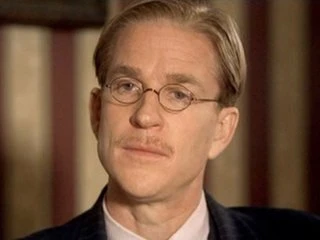
Liev Schreiber plays Ernst Hanfstaengl, the playboy businessman who did much to give Hitler a bit of polish and introduce him to polite society. Julianna Margulies is his wife, one of many women who developed an irrational fascination with Hitler - again, it is not really made clear how this happened. By contrast, Matthew Modine is a journalist who is identified as a potential sympathiser, but who, on meeting Hitler, is so repelled that he dedicates his life to fighting him. Between them these characters make the important point that a lot of people could have gone either way with Hitler and there was nothing inevitable about his rise.
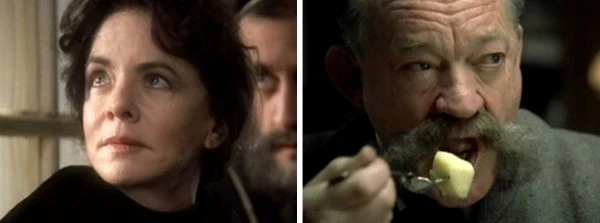
Blink and you will miss an early Thomas Brodie-Sangster as the unprepossessing boy Hitler, and Stockard Channing and Ian Hogg as his parents, in the titles sequence. Robert Glenister is the out of his depth founder of what became the NSDAP. David Calder is a pragmatic publisher who does not see the danger of the National Socialists. Zoe Telford is convincing as Eva Braun but is given little time to develop the character. Friedrich von Thun is a surprisingly affable, easy going Ludendorff - not at all how the intense military planner comes across in his Memoirs. It is a missed opportunity that more is not made of the crucial part played by Hermann Goering (Chris Larkin) in the National Socialists' textbook seizure of power.
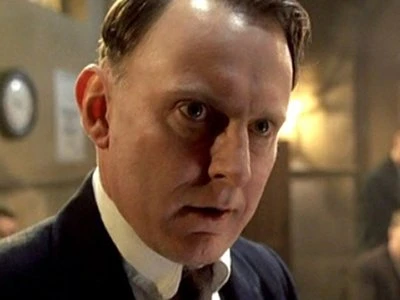
Although some scenes are perfunctory in the manner of "miniseries," others are very well put together. One set in what is surely the Dinner Party From Hell is particularly to be commended for not going in an obvious direction: Hitler's sociopathic response to a situation that would have embarrassed anyone else ensures that, far from being shamed as he ought to be, he goes on to win support. It is a significant moment which tells us a lot about his will to succeed.
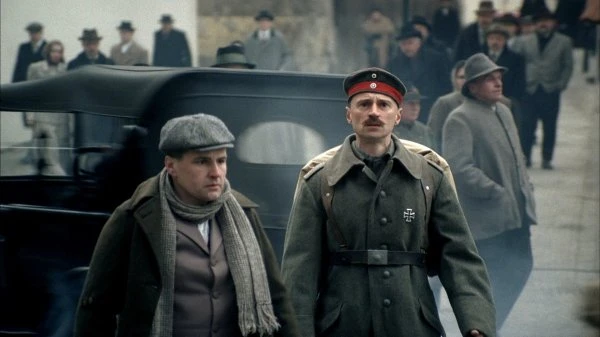
The production values are cinematic and the set pieces are particularly well handled, especially the Beer Hall Putsch and the big speeches. The Canadians know how to pull off a real sense of epic on a television budget. There is careful attention to the composition of individual shots, reflecting Hitler's own obsession in this regard. The trial scene is exaggerated but makes the point that it was this was the defining moment, more than any other, in which Hitler turned a humiliating defeat into a victory that put him on the main road to power.
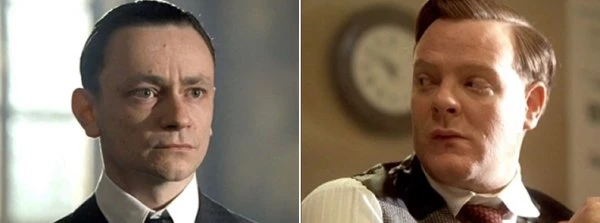
For all its flaws, and in spite of a shaky start, Hitler: The Rise of Evil turns into a compelling drama and represents at least a valiant attempt to explain how Hitler took power. To explain Hitler properly, and the people who helped him, a script would have to engage more closely with their point of view, which would be as brave as it would be beneficial in the present climate. It is not commercially or politically possible for such a script to be produced for television as things stand, so Hitler: The Rise of Evil is as close as we are likely to get.
If a psychologically more insightful production ever became viable, it would then face a different challenge, to keep a proper sense of proportion while humanising Hitler. In this respect, it could not possibly better the conclusion of Hitler: The Rise of Evil - which ends with the simple reminder that over a million of Hitler's murder victims were children.
Seen this show? How do you rate it?
Seen this show? How do you rate it?
Published on October 16th, 2021. Written by John Winterson Richards for Television Heaven.


